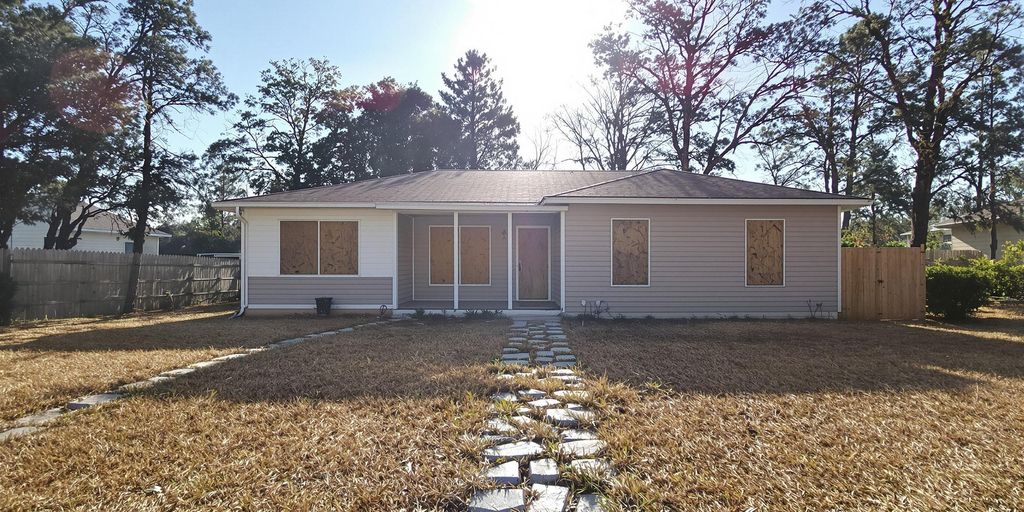Florida’s once-booming housing market is experiencing a significant downturn, marked by surging inventory and widespread price reductions. This shift signals a move from a seller’s to a buyer’s market, driven by factors like affordability issues, increased construction, and cooling demand, particularly impacting areas that saw rapid price appreciation.
Florida’s Housing Market Cools Down
Florida’s housing market, which saw unprecedented growth in recent years, is now facing a substantial slowdown. Active listings across major metropolitan areas have surged, with some metros seeing inventory levels 30% to 80% higher than in May 2019. This dramatic increase in available homes is primarily due to a plunge in sales, rather than a sudden influx of new listings, indicating a significant drop in buyer demand.
- Inventory levels in April and May were the highest recorded since 2016.
- Statewide, active listings increased by 32% year-over-year in May, reaching 181,822.
- Since late 2022, the inventory for sale has quadrupled.
Key Metros See Inventory Pile Up
Several Florida metropolitan areas are experiencing a substantial accumulation of unsold homes. While Miami’s inventory increase is more modest compared to 2019, other major cities show dramatic rises:
| Metro Area | Active Listings (May) | Year-over-Year Increase | Increase vs. May 2019 |
|---|---|---|---|
| Miami-Fort Lauderdale | 51,901 | 39% | 5% |
| Tampa-St. Petersburg | 20,033 | 31% | 40% |
| Orlando-Kissimmee | 13,994 | 39% | 42% |
| Cape Coral-Fort Myers | 13,757 | 36% | 36% |
| North Port-Sarasota | 10,870 | 31% | 36% |
| Jacksonville | 9,893 | 31% | 25% |
| Lakeland-Winter Haven | 5,161 | 25% | 80% |
Price Adjustments and High-Risk Markets
The rapid price appreciation seen during the pandemic era has led to demand destruction, forcing prices to adjust. Some areas are already experiencing significant price drops, with several markets flagged as high-risk for further declines.
- Florida’s statewide average appreciation dipped to -0.8% in April 2025.
- The median sales price in Florida fell to $390,000 in April 2025, below the national median.
- Mid-tier condo prices in Tampa have dropped by 11% from their mid-2022 peak.
Cotality’s analysis identifies five Florida markets with a "very high risk" of price decline:
- Cape Coral, FL
- Lakeland, FL
- North Port, FL
- St. Petersburg, FL
- West Palm Beach, FL
Additionally, Winter Haven and Tampa are also flagged for major price decline risk, with other areas like Fort Myers, Punta Gorda, and Sarasota already seeing drops of 3.6% to 5.3%.
Factors Contributing to the Slowdown
Several interconnected factors are driving this market correction:
- Affordability Crisis: Soaring prices combined with elevated interest rates have priced out many potential buyers.
- Increased Inventory: More homes on the market give buyers more options and leverage, reducing bidding wars.
- Cooling Migration/Demand: The frantic pace of new residents moving to Florida has slowed, and high living costs, including skyrocketing insurance premiums, are making some reconsider.
- Investor Pullback: Higher interest rates and the prospect of falling prices make real estate investments less attractive, reducing a key source of demand.
- Condo Market Woes: Post-Surfside reforms requiring structural inspections and reserve funding have led to higher fees and special assessments, chilling condo sales, particularly in South Florida.
This period of adjustment is seen by some as a necessary correction after years of unsustainable growth, bringing prices closer to alignment with local incomes and historical trends.
Sources
- 3 Florida Housing Markets Having the Highest Vacancy Rates, Norada Real Estate Investments.
- Inventory of Homes for Sale in the Biggest Florida Metros Piles Up to Highest in Years as Demand Has Withered
| Wolf Street, Wolf Street. - South Florida condo sales keep falling. Home price growth cools, WLRN.
- 5 Popular Florida Housing Markets Are at High Risk of Price Crash, Norada Real Estate Investments.
- 2 Florida Housing Markets Flagged for a Major Price Decline Risk, Norada Real Estate Investments.


